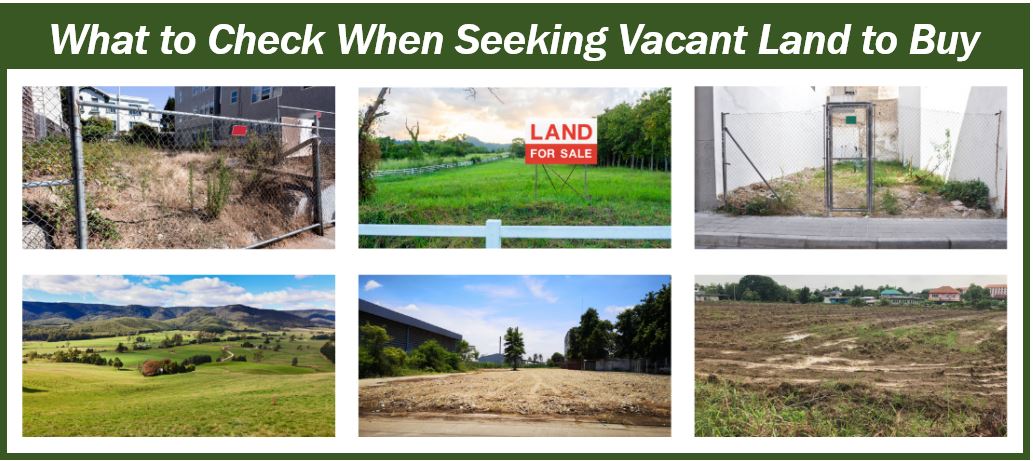Vacant land is like an open canvas, which you can use in many different ways. You can build your dream house, use it to expand your business, or keep it as an investment. A land offers flexibility and can act as a valuable long-term investment.

Created using images from https://webuyhousesinnewjersey.com/.
But buying or selling land is a complex process and is not as simple as it looks. Land buyers consider location, zoning, utilities, proximity to essential services, topography, property taxes before selecting a vacant land. Here, they are explained in detail:
The Zoning Classification
Land can fall under agricultural, residential, commercial, industrial, and other zoning areas. Therefore, make sure you check the zoning of the land when buying. This will help you figure out how you can use your land and ensure it fits your requirements.
The local planning and zoning department can tell you the kind of property allowed under your subject property’s zoning. It will help you use your land effectively and know what you can or can’t build on your land.
Good Location
Whether buying land as an investment or making a new house, location matters the most. A good location will help you get a good resale value if you want to sell vacant land in the future.
In case you are planning to start your business or build your home, it should have access to essential public utilities like water, electricity, gas, sewer, phone, and internet connection.
Risks of Natural Hazards
A plot of land is vulnerable to many natural hazards like flooding, storms, and hurricanes. Low-lying areas are most susceptible to flooding, especially when big storms arise. Therefore, you should know if a land is prone to natural hazards or not.
You can take the help of a FEMA flood map to find the level of risk involved in your property. And even plan insurance if necessary. With careful planning and home insurance, you can design a home in a flood zone area too. But try to avoid high-risk flood areas as it can be devastating for the property.
Topography of the Land
Knowing the topography of the land is vital as it affects the buildability of the property. Building a house on land situated on elevations, cliffs, mountains, ravines, valleys, etc., is difficult. So, you can check the topography by researching Google Earth and Earth Point.
Use the address and coordinates to know where the property is located and the land’s terrain. Your land should not be around wetland areas as the federal and state laws restrict any development near them.
Annual property taxes
Land can qualify for huge taxes, and different states and counties have their own rules on what land qualifies for a tax break program. You should be aware of the taxes you would pay if you want to hold onto your land for some time. Many land buyers don’t consider the taxes before buying land and end up paying taxes proportionate to the actual value of the land.
Road Access
If you plan to build a house in an area that’s not accessible, then living there would not be easy. It could lead to several other problems besides inconvenience like not having access to water, sewage, etc.
You may also face difficulties if your land is landlocked and the public road is accessible through a private road. In such a situation, you will have to develop an easement with the private road owner to use it.
Building Restrictions
You can’t just start building anything on your land. You have to know about the permit requirements as well as restrictions for construction on your land. Every state has its building restrictions, and you have to follow the plan laid down by the municipalities. So, your land will also have building restrictions about which you should be wary. Also, be ready to get permits if you plan to build a shed, drill a well, etc.
Percolation Rate of Soil
Before you buy land, make sure you know if it’s tested for percolation or not. It tells you if the ground can absorb water from a nearby septic system. In case the land has not been tested, get it tested by a soil scientist to understand the percolation rate of the soil in your land. It’s crucial to determine if you can install a septic system on the property. Otherwise, you might face a lot of difficulties later.
Give yourself enough time to go through the points mentioned above. Buying land can be very tricky, and if you want to break a good deal, you have to be informed and alert about every piece of information on the land you want to buy.
Interesting related article: “What is an Investment?“
